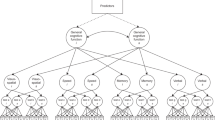Abstract
Cognition refers to the processes by which sensory input is transformed, reduced, elaborated, stored, and retrieved. Essential to any theory of cognition is a consideration of the ways in which an individual makes use of past experiences and past reactions to increase his mastery in achieving and utilizing knowledge (Bartlett, 1932). Like many terms in everyday use, cognitive functioning causes no problems in common usage, but ceases to be straightforward when subjected to critical inspection. The study of aging and cognitive functioning has followed, not surprisingly, a number of independent traditions in the psychology of cognition. One way in which cognitive functioning has been investigated is to consider general intellectual functioning as measured by standardized, psychometric tests of intelligence. Another approach, following the Ebbinghaus tradition, has been concerned almost exclusively with the acquisition (learning) and retention (memory) of verbal information using paired associate or serial learning tasks or free recall. The tradition has been to separate the study of verbal memory from the study of nonverbal activities.
Access this chapter
Tax calculation will be finalised at checkout
Purchases are for personal use only
Preview
Unable to display preview. Download preview PDF.
Similar content being viewed by others
References
Arenberg, D.: Differences and changes with age in the Benton Visual Retention Test. J. Gerontol. 33, 534–540 (1978)
Arenberg, D.: Memory and learning do decline late in life. In: Aging: A challenge for science and social policy. New York: Academic Press, to be published
Arenberg, D., Robertson-Tchabo, E.A.: Learning and aging. In: Handbook of the psychology of aging. Birren, J.E., Schale, K.W. (eds.), pp. 421–449. New York: Van Nostrand Reinhold 1977
Baltes, P.B., Schaie, K.W.: Aging and I.Q.: The myth of the twilight years. Psychology Today 7, 35–40 (1974)
Bartlett, F.C.: Remembering. Cambridge: Cambridge University Press 1932
Benton, A.L.: The revised visual retention test: Clinical and experimental applications. New York: Psychological Corporation 1963
Botwinick, J.: Intellectual abilities. In: Handbook of the psychology of aging. Birren, J.E., Schaie, K.W. (eds.), pp. 580–605. New York: Van Nostrand Reinhold 1977
Botwinick, J., Storandt, M.: Memory, related functions and age. Springfield (Ill.): Charles C. Thomas 1974
Costa, P.T., Jr., Fozard, J.L.: Remembering the person: Relations of individual difference variables to memory. Exp. Aging Res. 4, 291–304 (1978)
Craik, F.I.M.: Age differences in human memory. In: Handbook of the psychology of aging. Birren, J.E., Schaie, K.W. (eds.), pp. 384–420. New York: Van Nostrand Reinhold 1977
Cronbach, L.J., Furby, L.: How should we measure “change” — Or should we? Psychol. Bull. 74, 68–80 (1970)
Davies, A.D.M.: Age and memory-for-designs test. Br. J. Soc. Clin. Psychol. 6, 228–233 (1967)
Douglas, K., Arenberg, D.: Age changes, cohort differences, and cultural change on the Guilford-Zimmerman temperament survey. J. Gerontol. 33, 737–747 (1978)
Fozard, J.L., Costa, P.T., Jr.: Age differences in memory and decision making in relation to personality, abilities, and endocrine function. In: Aging: A challenge for science and social policy. New York: Academic Press, to be published
Gilbert, J.G.: Thirty-five-year follow up study of intellectual functioning. J. Gerontol. 28, 68–72 (1973)
Guilford, J.S., Zimmerman, W.S., Guilford, J.F.: The Guilford-Zimmerman temperament survey handbook. San Diego: EDITS 1976
Heron, A., Chown, S.: Age and function. Boston: Little Brown 1967
Hulicka, I.M., Grossman, J.L.: Age-group comparisons for the use of mediators in paired-associate learning. J. Gerontol. 22, 46–51 (1967)
Kendall, B.S.: Memory for designs performance in the seventh and eighth decades of life. Percept. Mot. Skills 14, 399–405 (1962)
Kogan, N.: Creativity and cognitive style: A life span perspective. In: Lifespan developmental psychology: Personality and socialization. Baltes, P.B., Schaie, K.W. (eds.), pp. 145–178. New York: Academic Press 1973
Schaie, K.W., Labouvie, Vief, G.: Generational versus ontogenetic components of change in adult cognitive functioning: A fourteen-year cross-sequential study. Dev. Psychol. 10, 305–320 (1974)
Schaie, K.W., Strother, C.R.: The effect of time and cohort differences upon age changes in cognitive behavior. Multivar. Behav. Res. 3, 259–294 (1968a)
Schaie, K.W., Strother, C.R.: A cross-sequential study of age changes in cognitive behavior. Psychol. Bull. 70, 671–680 (1968b)
Schaie, K.W., Labouvie, G.V., Buech, B.U.: Generational and cohort-specific differences in adult cognitive functioning: A fourteen-year study of independent samples. Dev. Psychol. 9, 151–166 (1973)
Solyom, L., Barik, H.C.: Conditioning in senescence and senility. J. Gerontol. 20, 483–488 (1965)
Stone, J.L., Norris, A.H.: Activities and attitudes of participants in the Baltimore Longitudinal Study. J. Gerontol. 21, 575–580 (1966)
Welford, A.T.: Aging and human skill. London: Oxford University Press 1958
Editor information
Editors and Affiliations
Rights and permissions
Copyright information
© 1979 Springer-Verlag
About this paper
Cite this paper
Robertson-Tchabo, E.A., Arenberg, D., Costa, P.T. (1979). Temperamental Predictors of Longitudinal Change in Performance on the Benton Revised Visual Retention Test Among Seventy Year Old Men: An Exploratory Study. In: Hoffmeister, F., Müller, C. (eds) Brain Function in Old Age. Bayer-Symposium, vol 7. Springer, Berlin, Heidelberg. https://doi.org/10.1007/978-3-642-67304-7_11
Download citation
DOI: https://doi.org/10.1007/978-3-642-67304-7_11
Publisher Name: Springer, Berlin, Heidelberg
Print ISBN: 978-3-642-67306-1
Online ISBN: 978-3-642-67304-7
eBook Packages: Springer Book Archive




